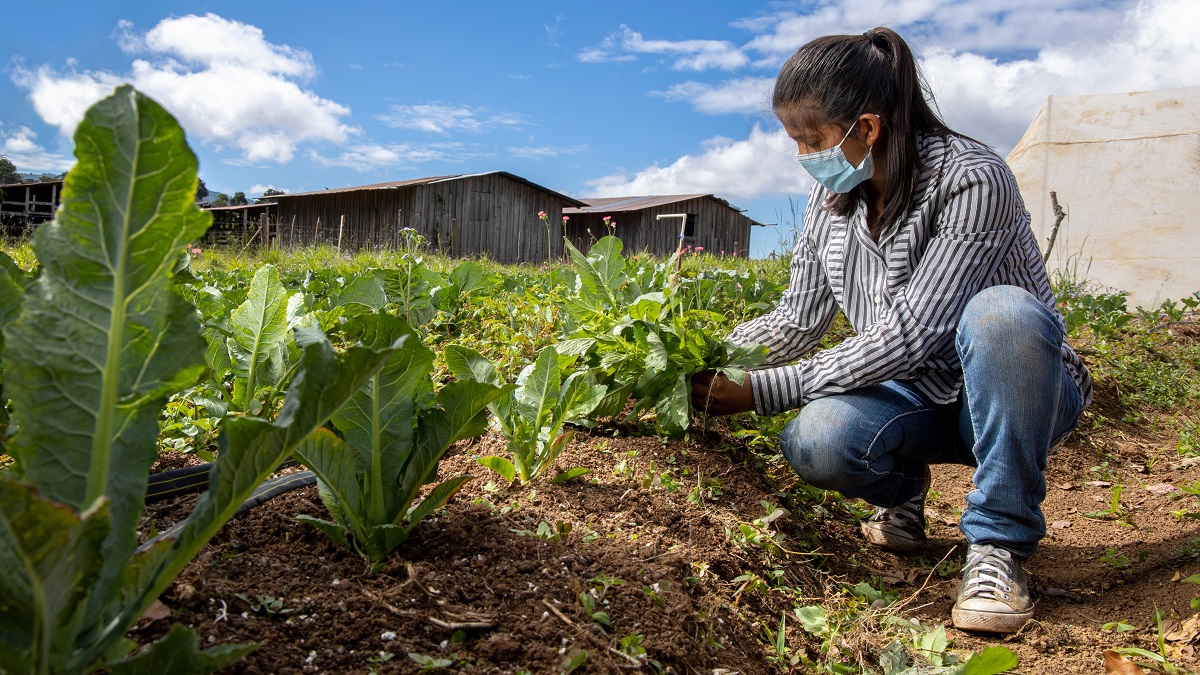A new project and framework to collect data will build a clearer picture of global development support.
© Shutterstock/Vivid imagery | A young farmer in La Esperanza, Intibucá, Honduras.
UNCTAD and its partners have kicked off a three-year global project to help developing countries use a common framework to measure and give more visibility to South-South cooperation.
The project’s first event, organized with Brazil from 11 to 13 July, brought together representatives from 16 countries across Africa, Asia and Latin America. Participants also included economists, statisticians and development experts from over 10 international organizations, including four UN Regional Commissions.
South-South cooperation – when developing countries pool resources or share knowledge, skills and expertise – is a powerful tool that can take many forms.
For instance, Mexico allocated $62 million from 2020 to 2022 for programmes in Honduras and El Salvador that helped improve food security and create jobs for young people, benefitting more than 40,000 people.
Other examples include Brazil and India’s collaboration on satellite technology to monitor deforestation and boost agricultural production, and Colombia and the African Union’s joint projects to empower women through aquaculture in Nigeria, Tanzania and South Africa.
“South-South cooperation is key to achieving the 2030 Agenda and became particularly pronounced during the pandemic when countries came together in solidarity,” said Sumeeta Banerji, a policy specialist at the UN’s Office for South-South Cooperation, who participated in the July event, held in Brasilia and online.
An incomplete picture
But historically global development discussions have leaned exclusively on data from cooperation that also involves developed countries or multilateral organizations – or both.
Without reliable data on South-South cooperation, the picture of international development cooperation remains incomplete.
In March 2022, the UN Statistical Commission introduced a new SDG indicator (17.3.1) to measure "additional financial resources mobilized for developing countries from multiple sources."
It also welcomed a voluntary common framework designed by developing countries to measure South-South cooperation and provide data for the new indicator.
“Now we have a framework that is made by the South for the South,” Brazilian Ambassador Luiza Lopes of the Brazilian Cooperation Agency said.
“This truly is a historic milestone for South-South cooperation,” added Luciana Mendes Santos Servo, president of Brazil’s Institute of Applied Economic Research.
The UN Statistical Commission asked UNCTAD, as a co-custodian of the new SDG indicator, to coordinate with developing countries further work on the framework, including on reporting and capacity-building.
More than a tool
The framework was developed through a sub-group under the UN’s Inter-agency and Expert Group on SDG Indicators.
The process was inclusive and interactive, and the result reflects the actual practices of the global South – not in the traditional set-up of donor and recipient countries but as equal partners.
“It’s more than just a tool for measurement,” said Ms. Anu Peltola who leads UNCTAD Statistics. “It gives voice for the hope and solidarity of developing countries.”
Mr. Sukhbir Singh, chair of the sub-group that developed the framework, agreed: "For the first time, this framework enables developing countries to tell the story of their development cooperation in numbers and inform South-South cooperation policies with solid data."
A shared responsibility
Moving ahead, it will be important for participating countries to secure political will and ensure efficient collaboration between government agencies, as data on South-South collaboration will come from many areas, such as health, energy, food security, education and environment.
Also, the scarce resources in many developing countries mean international and regional support will be crucial. Acquiring the national capabilities to consistently collect accurate data is a big task, requiring support from specialized, regional and international organizations.
“The journey ahead may be filled with challenges,” Ms. Peltola said, “but when countries come together with a shared vision, important results can be achieved.”
“It is now the shared responsibility of the UN and the developing countries to make this framework work and tell the story of the global South.”
The UN celebrates South-South cooperation every year on 13 September. This year, the day falls just a week before the highly anticipated SDG Summit, offering an opportunity to highlight South-South cooperation's role in tackling global challenges – and the need to collect more and better data.

